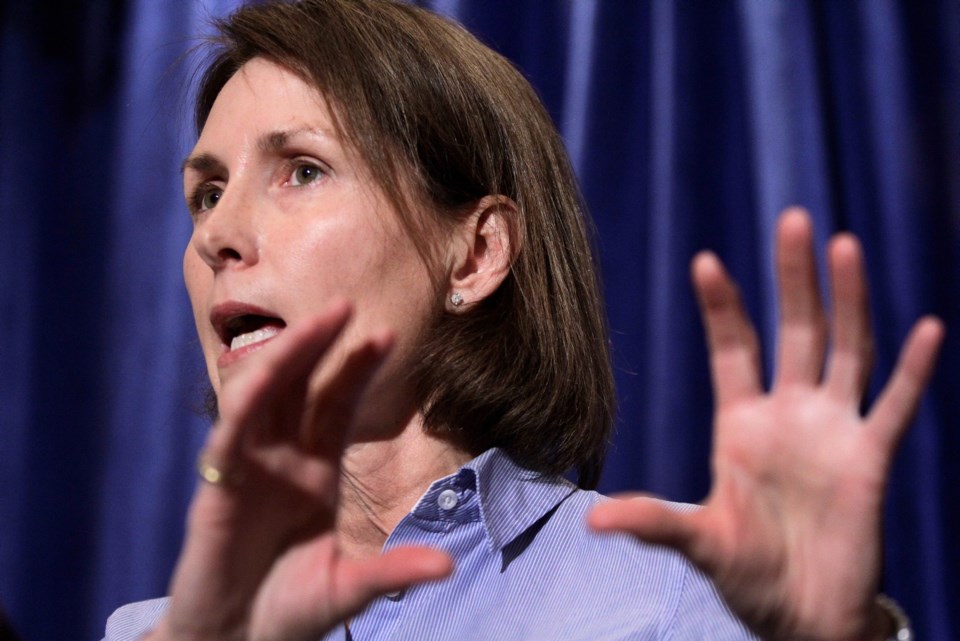The B.C. Coroners Service showed a “shocking” lack of interest in the suicide of a 14-year-old aboriginal girl on a rural B.C. reserve three years ago, B.C.’s representative for children and youth said.
Mary Ellen Turpel-Lafond said the coroners service took a year to complete its report on the girl’s death and failed to make a single recommendation.
By contrast, Turpel-Lafond’s review highlighted a “virtual collapse” of services that might have prevented the girl’s death in 2011.
“The representative’s office can’t be the only system,” Turpel-Lafond said. “We have to have an active coroners service, an active child death review unit. We have to have the on-the-ground coroners doing the work and actually making recommendations.
“It is upsetting that there wasn’t greater interest by others who have a responsibility to learn from and investigate unexpected deaths of children.”
Turpel-Lafond also chastised the Ministry of Children and Family Development for failing to do its own internal review of the case.
“I respectfully suggest they change their criteria for a review,” she said. “They need to have a more robust process.”
Turpel-Lafond’s investigation concluded that the ministry’s regional office responsible for the girl’s file was so understaffed that “in effect, there was no functional child-welfare system.” She also found that social workers were afraid to visit the reserve to investigate child-protection complaints because they felt unwelcome and faced prior threats and intimidation.
As a result, the girl was largely left to cope on her own with a litany of issues. She lived with her sometimes-violent, mentally ill mother, endured physical and emotional abuse, and likely was sexually assaulted by at least two people in the community, the report said.
Minister of Children and Family Development Stephanie Cadieux agreed that her office should have done its own review.
Cadieux said the ministry has since re-established a director of child welfare to strengthen provincial oversight.
“If this position had been in place [then], we can assure you that a review would have been completed,” she said.
Chief Coroner Lisa Lapointe issued a statement Friday defending her agency’s investigation of the girl’s suicide.
“Coroners frequently decide not to make recommendations in cases where their investigation shows that the agencies in question are already addressing the issues that have been brought to light,” she said.
Lapointe said that was the case in the death of the 14-year-old girl, because the ministry was already taking steps to deal with the issues.
She also noted that former judge Ted Hughes recommended in his 2006 review of the child-welfare system that the representative’s office take the lead on reviewing injuries and deaths of children in government care. Hughes said the coroners service lacked the necessary expertise in the child-welfare system to tackle such reviews.
“The coroner’s role is to answer the questions: Who died, and how, when, where and by what means?” Hughes wrote. “The focus is on the circumstances of the death itself. In contrast, the representative’s investigation will include an examination of the child’s life in relation to the child welfare system.”
Lapointe acknowledged that the coroner’s investigation of the girl’s suicide took too long. But she said the service is making changes to its investigative model to fix that situation.
The coroners service investigates the deaths of about 300 children a year. Its child-death review unit reviews all the deaths, and the unit chairs a panel of experts that examines specific categories of deaths to make recommendations and prevent other deaths, Lapointe said.



